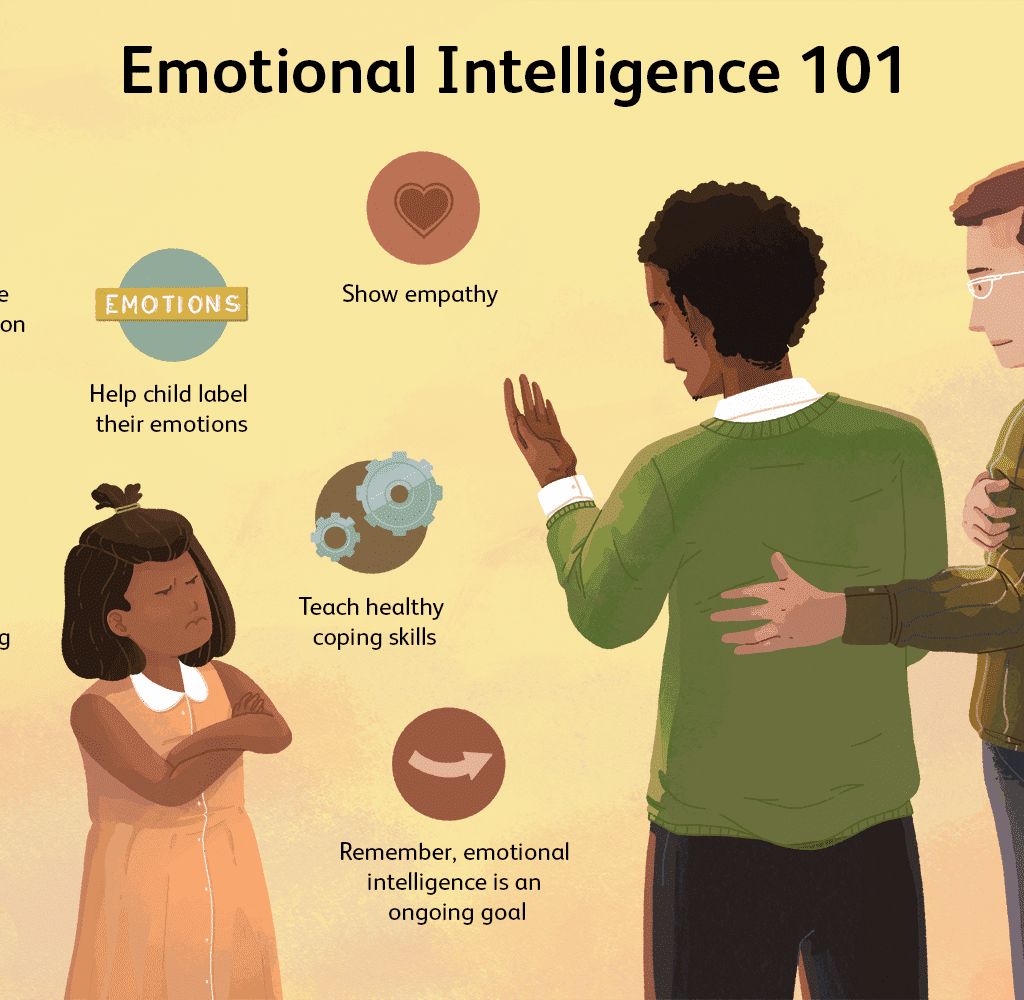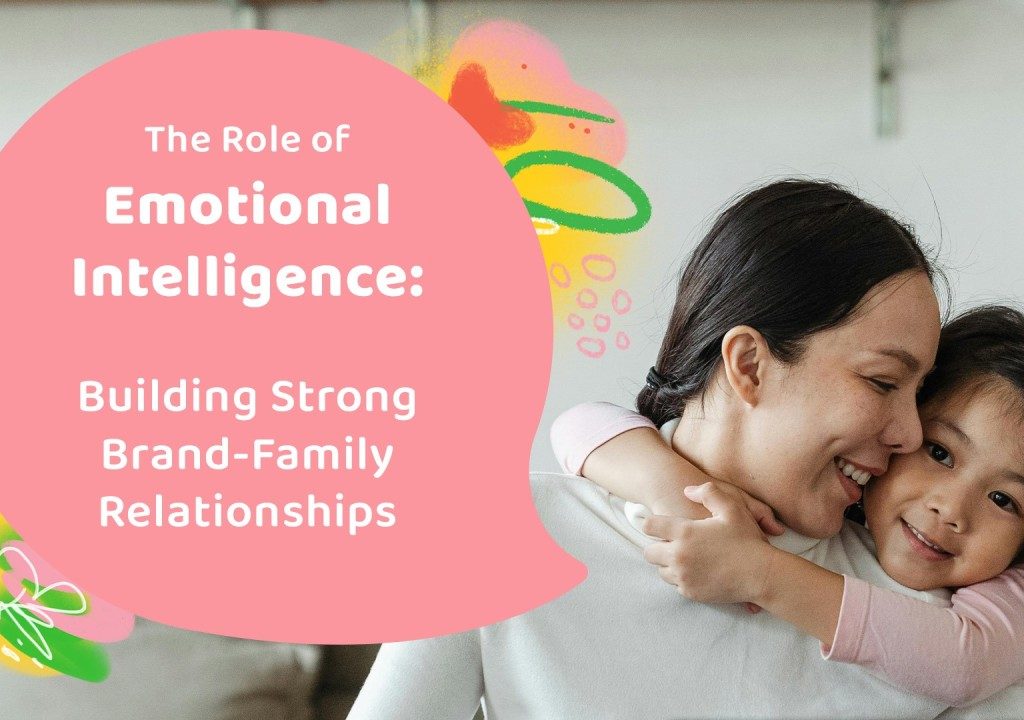Emotional intelligence (EI) is a critical factor in effective parenting, particularly during adolescence. Understanding the interplay between parenting styles and trait emotional intelligence can significantly influence a child’s emotional and social development.
Emotionally intelligent parenting is a critical factor in effective parenting, particularly during adolescence. Understanding the interplay between parenting styles, respectful parenting, and trait emotional intelligence can significantly influence a child’s emotional and social development. This article will explore the importance of emotional intelligence in parenting, provide examples, and discuss training resources available for parents.
Importance of Emotional Intelligence in Parenting:
Emotional intelligence encompasses the ability to recognize, understand, and manage emotions—both one’s own and those of others. In the context of parenting, EI is essential for fostering healthy emotional development in children. Research indicates that children raised by emotionally intelligent parents are more likely to exhibit strong social skills, higher self-esteem, and better academic performance.

Parenting Styles and Their Impact on Emotional Intelligence:
Different parenting styles—authoritative, authoritarian, permissive, and neglectful—play a significant role in shaping a child’s emotional intelligence:
- Authoritative Parenting: Characterized by high responsiveness and high demands, this style is associated with positive emotional development. Studies show that children with authoritative parents often score higher on emotional intelligence assessments.
- Authoritarian Parenting: This style imposes strict rules with little warmth or feedback. Research indicates that it can hinder emotional expression and lead to lower EI scores among children.
- Permissive Parenting: While permissive parents are nurturing, they often lack boundaries. This can lead to mixed outcomes regarding EI; some children may develop strong social skills while others may struggle with self-regulation.
Emotional Intelligence in Parenting Examples:
Here are practical examples of how parents can foster emotional intelligence:

- Modeling Emotional Awareness: Parents should openly express their emotions during discussions about daily events. This practice teaches children how to articulate their feelings.
- Encouraging Empathy: Engaging children in conversations about others’ feelings helps them learn to empathize and understand different perspectives.
- Creating a Safe Space for Expression: Allowing children to share their thoughts without judgment fosters an environment where they feel comfortable expressing their emotions.
Emotional Intelligence Parenting Books:
Several books provide valuable insights into enhancing emotional intelligence within family dynamics:
- “Emotional Intelligence 2.0” by Travis Bradberry and Jean Greaves: This book offers practical strategies for improving EI.
- “The Whole-Brain Child” by Daniel J. Siegel and Tina Payne Bryson: It discusses how understanding brain development can enhance parenting practices.
Emotional Intelligence Training for Parents:
Training programs focused on developing parental emotional intelligence can be beneficial. These programs typically cover topics such as:
- Recognizing personal emotions
- Understanding children’s emotions
- Effective communication strategies
Such training equips parents with tools to create a nurturing environment that promotes emotional growth.
Emotional Intelligence in Family Relationships:
Emotional intelligence significantly impacts family dynamics. Families that prioritize EI tend to communicate more effectively, resolve conflicts amicably, and create a supportive atmosphere where all members feel value .By understanding the relationship between parenting styles and emotional intelligence, parents can adopt practices that nurture their children’s emotional development. This approach not only strengthens family bonds but also prepares adolescents for successful interactions in their future relationships.

Conclusion:
In summary, fostering Emotional Intelligence in Parenting through appropriate parenting styles is essential for raising well-adjusted adolescents. Parents are encouraged to reflect on their practices and consider how they can cultivate an emotionally intelligent environment at home. This blog post serves as a comprehensive guide for parents seeking to enhance their understanding of emotional intelligence within the context of different parenting styles while providing actionable insights and resources.
FAQS:
What is Emotionally Intelligent Parenting?
Emotionally intelligent parenting involves recognizing, understanding, and managing both one’s own emotions and those of children. It focuses on creating a supportive environment that fosters emotional awareness and resilience, allowing parents to respond thoughtfully rather than reactively to their children’s needs.
What is the Relationship Between Parenting and Emotional Intelligence?
The relationship between parenting and emotional intelligence is significant; parenting styles directly influence a child’s emotional development. Emotionally intelligent parents are more likely to nurture their children’s emotional skills, leading to better social interactions, self-regulation, and overall well-being.
What are the 5 C’s of Emotional Intelligence?
The 5 C’s of emotional intelligence include:
- Self-Awareness: Recognizing one’s emotions.
- Self-Regulation: Managing emotions effectively.
- Empathy: Understanding others’ feelings.
- Social Skills: Building strong relationships.
- Motivation: Encouraging personal growth and resilience.
What is Emotional Intelligence as a Mother?
For mothers, emotional intelligence means being attuned to their children’s emotions while effectively managing their own. This involves active listening, empathy, and modeling emotional expression, which strengthens the mother-child bond and equips children with essential emotional skills for life.
External Resources:
- Parenting with Emotional Intelligence – Six Seconds EQ
Explore how emotional intelligence can help parents navigate their child’s emotions effectively. - Raising Emotionally Intelligent Kids: Tools for Real-World Parenting
Learn practical strategies to model emotional awareness and resilience for your children.

Empowering parents to raise happy, confident kids. Get practical parenting tips and advice on our blog, Smart Parent Guides.
